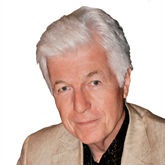The recent attack on the Paris offices of the satirical magazine Charlie Hebdo was a reminder – if one was needed – that these small-scale acts of violence are increasingly a fact of life in many parts of the world. In recent years, there have been a growing number of similar attacks, often inspired by radical religious ideology. In fact, the Malaysian police have warned of possible incidents in this country. There are risks, not just from those who have returned from fighting or training in the Middle East or South Asia, but from people who have never travelled, yet are apparently inspired by the warped views promoted by these terrorist groups, whose primary objectives seem to be nothing more than killing people and creating an atmosphere of fear.
The probability of the average individual being caught up in such an incident is very low compared to the many other daily risks we face. Like plane accidents, however, the dramatic nature of terrorist attacks ensures they get a disproportionate amount of media coverage which serves to make people more afraid than the circumstances perhaps merit. More people died on Malaysian roads last year than in all the air accidents worldwide combined, but the worldwide media coverage of air crashes causes many people to be afraid of flying.
France regards the recent attack in Paris as an attack on freedom of expression rather than as just another terrorist attack. The French philosopher Voltaire, who was ahead of his time in pushing for freedom of expression, wrote, “I do not agree with what you have to say, but I’ll defend until the death your right to say it.” This is the basic sentiment in most Western countries today. However, there is at times disagreement on exactly where to draw the line.
Ironically, a cartoonist at Charlie Hebdo was fired in 2009 because humorous remarks he made about President Sarkozy’s son marrying a Jewish heiress were regarded by them as anti-Semitic and he refused to apologise. He filed a wrongful dismissal lawsuit and won.
While Western leaders openly support the view that people should accept criticism and satirical attacks on their actions or even their beliefs, others feel differently. The Pope recently made it clear, for example, that while he supports freedom of expression, he is opposed to anyone who insults or ridicules religion.
Given the sensitivity that some Muslims have towards anything considered critical of their beliefs, and especially any depictions of the Prophet Mohammed, it is hard to see any benefit from choosing to publish such images, though of course doing so should never be met with violence, as many Muslim leaders around the world have insisted. Regardless of the wisdom of publishing potentially incendiary material, the laws of France are quite clear and do not allow for any other option, even if the government wanted that to happen.
Compared to Western countries, Asian countries tend to be a lot less tolerant about what people say and write. The annual World Press Freedom Index, published by Reporters Without Borders, shows most Asian countries sitting in the bottom third of their listing of 180 countries. In the 2014 report, Malaysia was ranked 144th, which was higher than Singapore and the Philippines and a little lower than Thailand and Indonesia.
There was talk of repealing the Sedition Act in Malaysia, as many considered it outdated and too extreme in its powers. However, the Prime Minister feels that this is not the right time to repeal it and has decided to leave it in force. Certainly there seems to be an increase in religious tensions in this country in recent years, although it is not clear how much is a reflection of global events and how much is purely local in origin.
As with other countries, there will never be full agreement on how much freedom people should have to speak or write their views, but as societies mature and nations develop, usually the move is towards more freedom than less, and it is hard to argue with that direction. Whether some Western countries have allowed things to go too far is a hotly debated topic, and for many thoughtful people, it’s possible to appreciate both sides of the debate, given the right circumstances.
Stay safe and keep enjoying Malaysia.
Read This: Road Fatalities and Dangerous Driving in Malaysia
Source: The Expat Magazine February 2015
"ExpatGo welcomes and encourages comments, input, and divergent opinions. However, we kindly request that you use suitable language in your comments, and refrain from any sort of personal attack, hate speech, or disparaging rhetoric. Comments not in line with this are subject to removal from the site. "






















Because Asians don’t care so less conflict.
Are you sure?! Feels exactly opposite…
Share thoughts, questions, or feedback here!